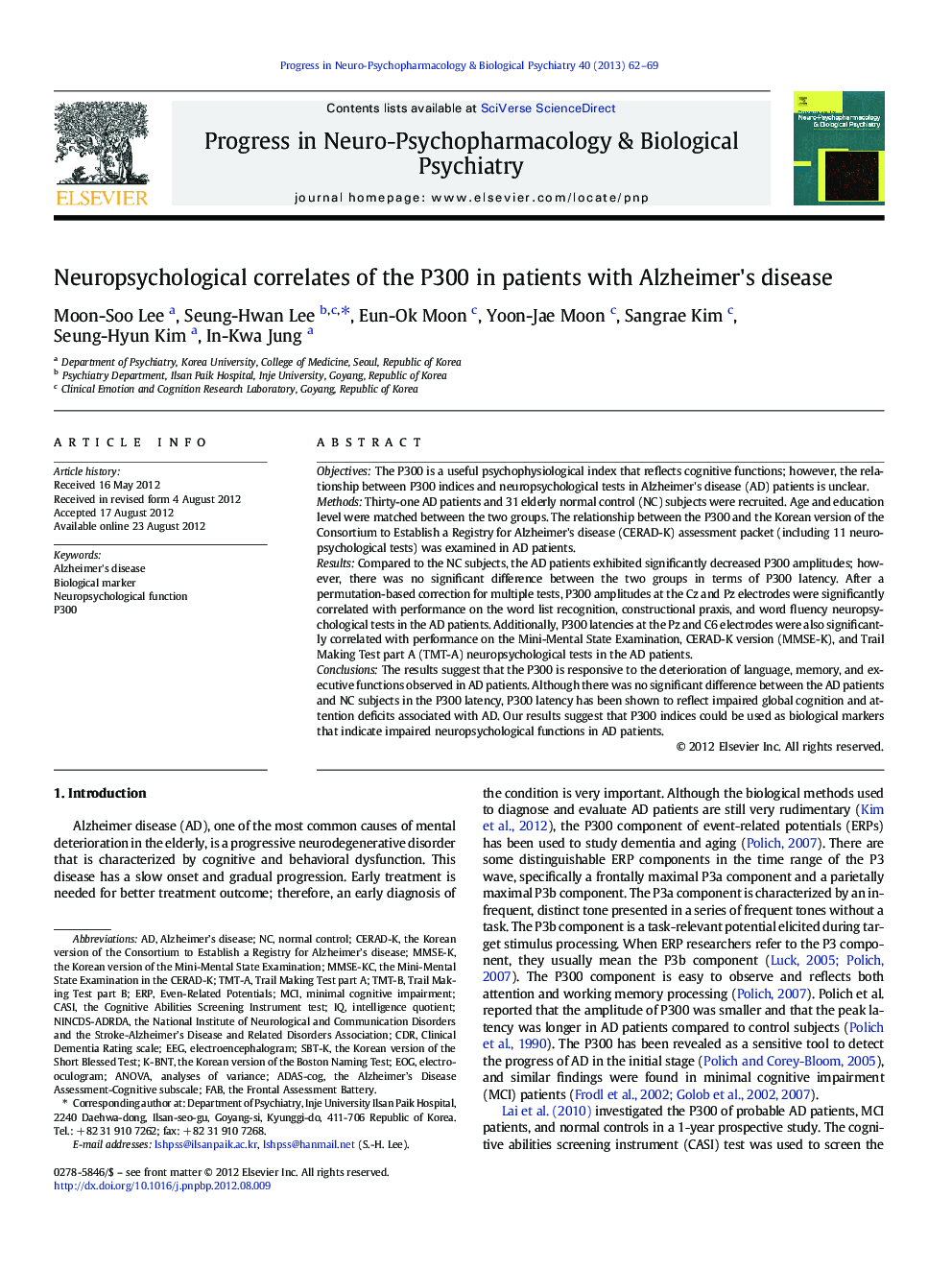| کد مقاله | کد نشریه | سال انتشار | مقاله انگلیسی | نسخه تمام متن |
|---|---|---|---|---|
| 2564948 | 1561054 | 2013 | 8 صفحه PDF | دانلود رایگان |

ObjectivesThe P300 is a useful psychophysiological index that reflects cognitive functions; however, the relationship between P300 indices and neuropsychological tests in Alzheimer's disease (AD) patients is unclear.MethodsThirty-one AD patients and 31 elderly normal control (NC) subjects were recruited. Age and education level were matched between the two groups. The relationship between the P300 and the Korean version of the Consortium to Establish a Registry for Alzheimer's disease (CERAD-K) assessment packet (including 11 neuropsychological tests) was examined in AD patients.ResultsCompared to the NC subjects, the AD patients exhibited significantly decreased P300 amplitudes; however, there was no significant difference between the two groups in terms of P300 latency. After a permutation-based correction for multiple tests, P300 amplitudes at the Cz and Pz electrodes were significantly correlated with performance on the word list recognition, constructional praxis, and word fluency neuropsychological tests in the AD patients. Additionally, P300 latencies at the Pz and C6 electrodes were also significantly correlated with performance on the Mini-Mental State Examination, CERAD-K version (MMSE-K), and Trail Making Test part A (TMT-A) neuropsychological tests in the AD patients.ConclusionsThe results suggest that the P300 is responsive to the deterioration of language, memory, and executive functions observed in AD patients. Although there was no significant difference between the AD patients and NC subjects in the P300 latency, P300 latency has been shown to reflect impaired global cognition and attention deficits associated with AD. Our results suggest that P300 indices could be used as biological markers that indicate impaired neuropsychological functions in AD patients.
► The P300 amplitude has reduced in AD patients.
► The P300 amplitude reflects executive, language, and memory function in AD patients.
► P300 latency reflects global cognition and attention deficit in AD patients.
► The P300 indices could be used as a biological marker in AD patients.
Journal: Progress in Neuro-Psychopharmacology and Biological Psychiatry - Volume 40, 10 January 2013, Pages 62–69